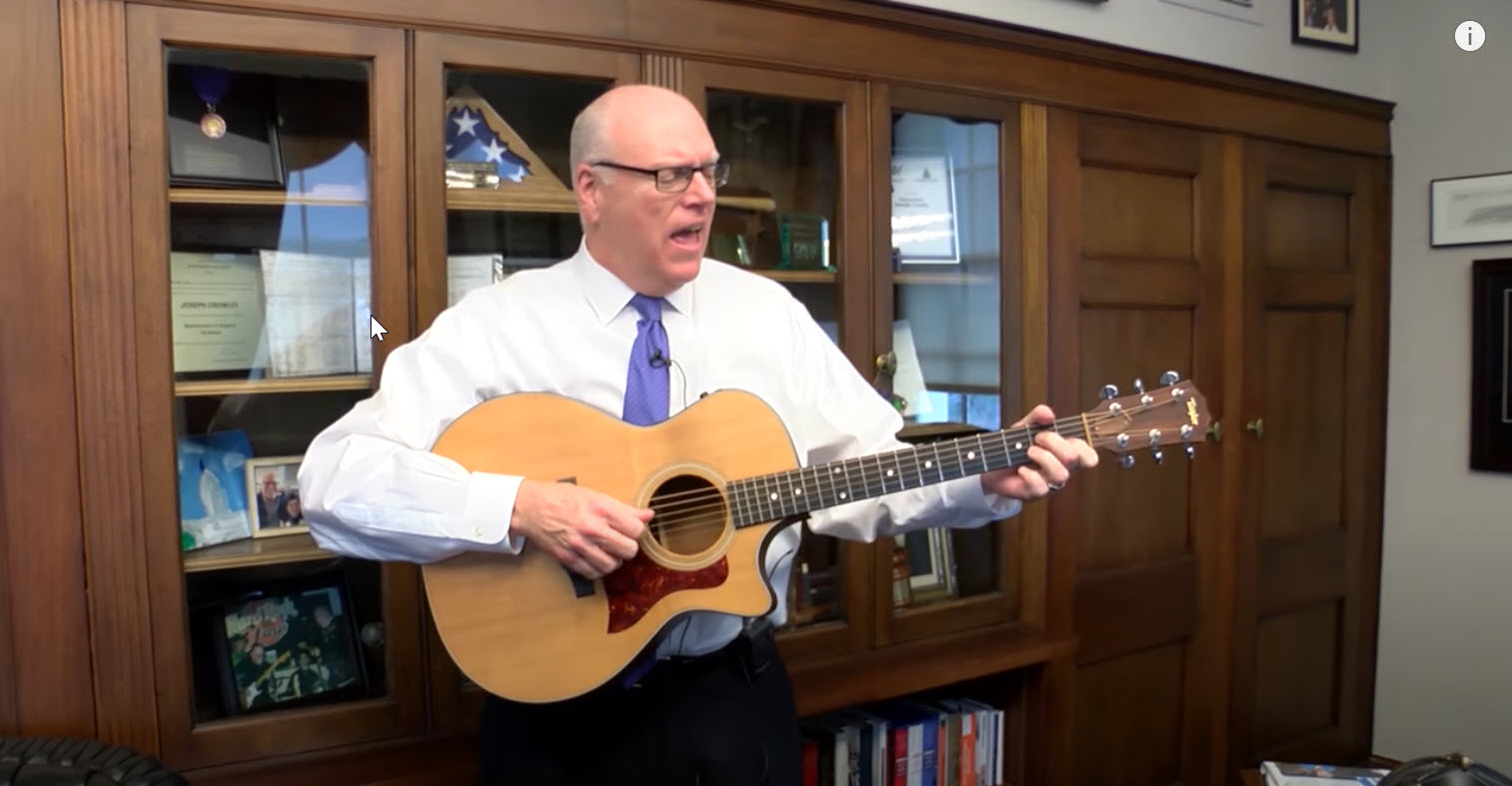
Former New York congressman and musician Joe Crowley will register as a lobbyist for the musicFIRST Coalition, according to reports, and he will also be the group’s new chairman.
Crowley has been out of office since January 2019, after being defeated in a primary election. He has been employed as a policy advisor by the lobbying firm Squire Patton Boggs for much of that time, but this is the first time he will work as a lobbyist in an official capacity. Squire Patton Boggs registered to lobby for musicFIRST in March and reported being paid $90,000 by the group in Q1.
MusicFIRST’s tagline is “love the music, empower the artist,” and it says it advocates for musicians and recording artists to be paid fairly when their work is broadcast or streamed. “We have to restore fairness to music and ensure that those who create the sound recordings that change our lives are compensated fairly, especially since others are already profiting from their hard work,” musicFIRST’s website reads.
Crowley, who would show off music memorabilia in his Hill office and often picked up a guitar, said on Twitter he’s joining musicFIRST because “we need to change the rules rigged in favor of a few billion-dollar media companies” to help out struggling artists.
Despite all appearances, musicFIRST is not a grassroots musicians coalition. It’s a front group for the Recording Industry Association of America (RIAA), a lobbying association for the major labels that are notorious for ripping off artists by saddling them with debt while profiting off their work, including Sony, Universal, and Warner Music Group. The RIAA’s goal is the “financial vitality of the major music companies,” according to its website.
If you’re not familiar with the economics of major label record contracts, check out this piece from Courtney Love where she lays it out and labels the contracts “piracy.” Essentially, a band will be paid a recoupable advance to record an album and go on tour and then be required to pay the money back by forking over their already small share of album sales proceeds. The label collects the album sale profits and retains the rights to the recordings.
Love calls out the RIAA for securing a “technical amendment” in a copyright bill that defined sound recordings as “works for hire,” preventing musicians from reclaiming their copyrights after 35 years. The RIAA hired the congressional staffer who inserted the amendment, Mitch Glazier, and he is now the lobbying group’s chairman and CEO and was paid more than $1 million in 2019, according to tax documents.
MusicFIRST lobbies Congress on “general copyright reform” and backed the Music Modernization Act, signed into law by President Trump in 2018, that updated music licensing procedures for the digital age but also included a one-sided, RIAA-backed provision that will create federal copyright protections for pre-1972 recordings, allowing record companies to collect royalties, while not applying the public domain protections for these works that libraries and other nonprofit archives rely on to operate.
These days, musicFIRST is primarily representing the record industry in a lobbying battle against the broadcasting industry. The RIAA wants Congress to pass a law requiring terrestrial broadcasters to pay royalties when they play their recordings. That could benefit artists somewhat, but it would benefit even more the RIAA’s major record label members and its affiliated nonprofit SoundExchange, which collects and disburses royalties to sound recording copyright holders for a fee. SoundExchange is also a member of musicFIRST. SoundExchange pays its CEO and President Michael Huppe more than $1.6 million annually and has 10 employees who earn more than $250,000 in annual salary, according to its tax return.
The RIAA hosted Crowley for a campaign fundraiser at its headquarters in 2010, according to Roll Call.
The Union of Musicians and Allied Workers (UMAW) is another organization that says it fights for artists to get their fair share. Unlike musicFIRST’s approach representing its partner RIAA and its member record companies, UMAW’s work includes things like helping artists negotiate better contracts with labels and running a campaign calling on Spotify to operate with more transparency around practices like payola and to pay higher royalties.
